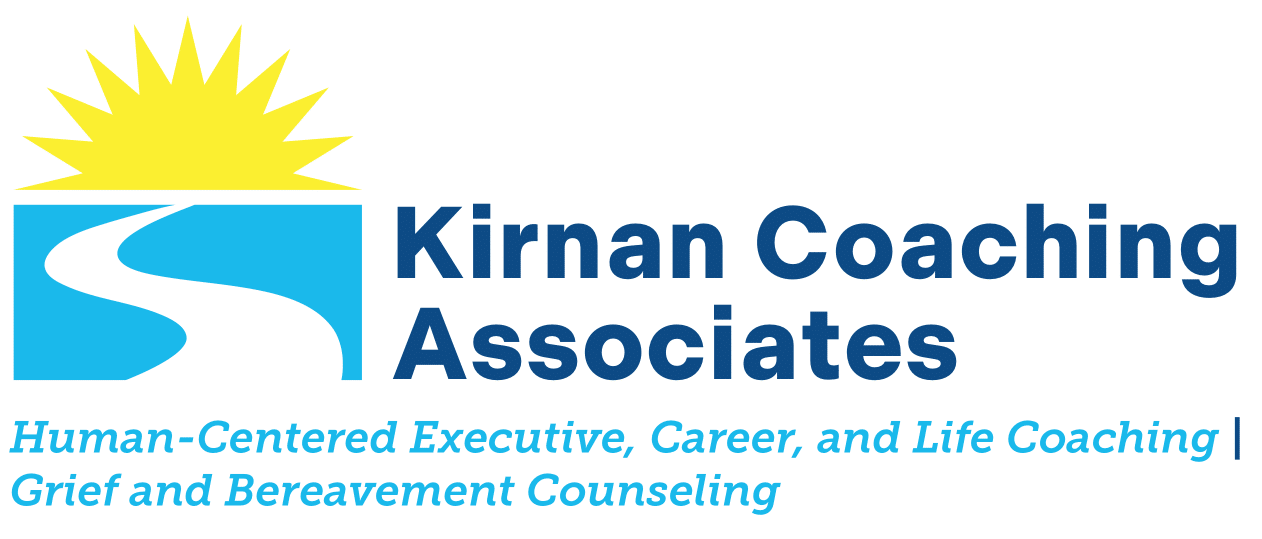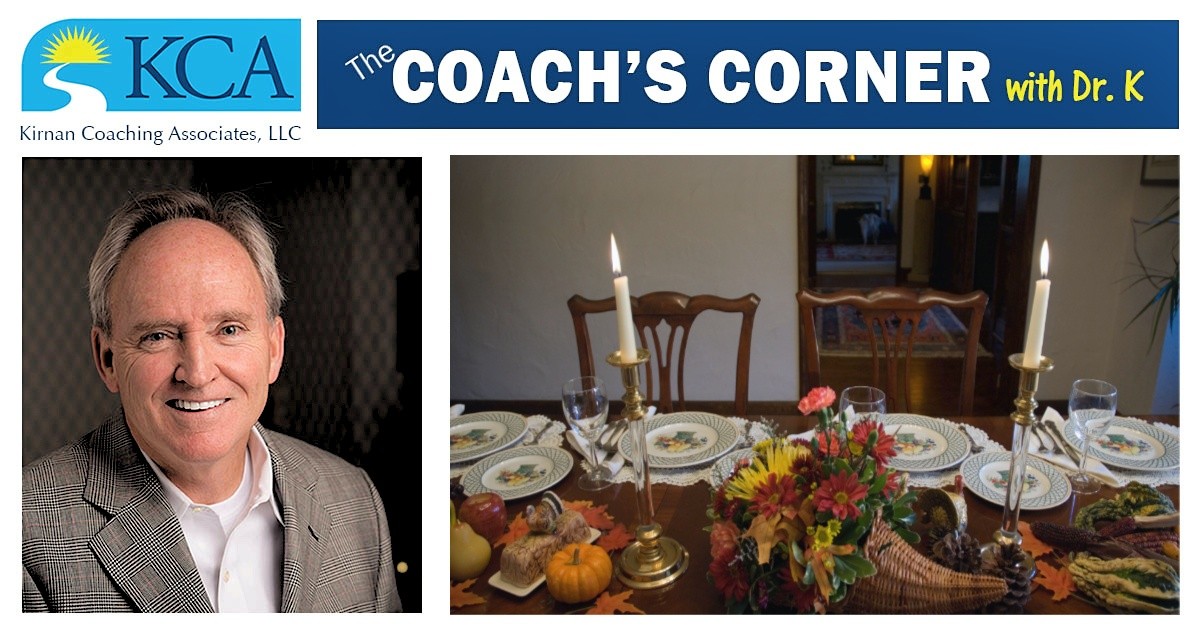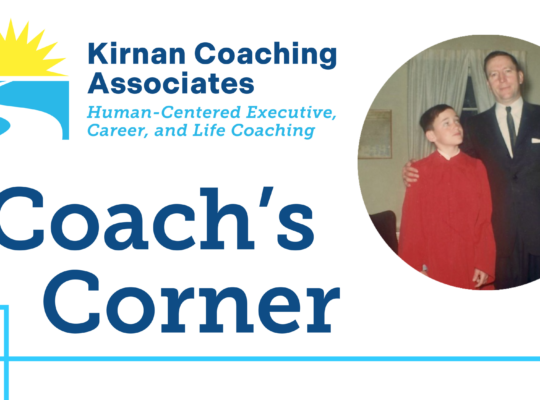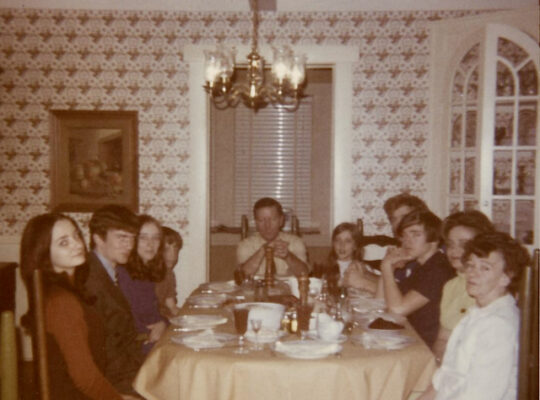“There’s a grief that can’t be spoken, there’s a pain goes on and on. Empty chairs at empty tables, now my friends are dead and gone.”
Lyrics from the song Empty Chairs at Empty Tables from the Broadway musical Les Misérables, Herbert Kretzmer (1985)
That Discomfort We Are Feeling is Grief for All of Those Empty Chairs and Tables
A virtual Thanksgiving Holiday! The very thought of that would have been unthinkable a year ago, but my extended family and I are fully on board and united in doing whatever it takes to keep everyone safe and sound. It will be incredibly difficult being physically separated from our loved ones many of whom have joined us for Thanksgiving over the past 30 plus years but it’s something we must sacrifice this year in the hope that we can all be together again next year and beyond. In years past, our conversations around the Thanksgiving table would center on our daily lives and careers, how things had changed for each of us during the past year, and what our hopes and dreams were for the future. There were also those extra special moments to welcome the blessings of the new chairs that adorned our Thanksgiving table like our new son-in-law, my future son-in-law, our grandchildren, as well as the new members of our extended family who would often join us for the very first time.
In more recent years, we had to set up extra tables and chairs in our adjoining living room to accommodate everyone. Somehow, my wife Jean would magically make everything work out just fine with everyone able to take home some extra turkey and stuffing, the mashed potatoes, the chocolate chip and oatmeal raisin cookies, and of course those awesome apple, pumpkin, and cherry pies. And we would always take time in prayer to honor and share our memories of those family members who were no longer with us, poignantly captured by the image of an “empty chair”, once so full of life but now having earned its angels’ wings to the ultimate destination, an eternal trip to be with God in heaven. Like many of our friends, we’ve had to set aside more empty chairs of late and say goodbye to both my wife’s as well as to my own parents these past few years, to my brother-in-law Chris in 2019, and my sister-in-law Jackie just this past month.

But this year is like no other as our lives, our routines, and traditions have been turned upside down and in ways we may never fully understand. The daily headlines of new infections, hospitalizations, shortages of critical Personal Protective Equipment (PPE), hospital capacity systems often overloading, and a death count that has now surpassed 260,000 Americans and almost 1.4 million worldwide. Families around the globe will be mourning so many more “empty chairs” this year at both Thanksgiving, Christmas, and Hanukkah and face a future without a spouse or partner, a Mom or Dad, a brother or sister, a grandparent, a young child, a neighbor, or a friend or colleague at work. Grieving the loss of a loved one has always been one of the greatest challenges any of us will ever face in this life but the grieving process itself has been made far more challenging during the time of COVID-19 because of all the protocols that are necessary to stop the spread of the virus and to protect the community at large. So many funerals, wakes, and Shivas were understandably postponed due to such restrictive protocols which have had a significant adverse impact on the family members just trying to grieve the loss of their loved ones. And now with the more recent spike in infections taking hold around the world, more and people will be staying home leaving even more empty chairs vacant at more empty Thanksgiving tables.
There’s so much emotion that can be captured in the image of an empty chair and table, and it’s a feeling made even more real when we read or hear the lyrics of that great Broadway musical Les Misérables and the song Empty Chairs at Empty Tables. That song really captures the Survivor’s Guilt we often feel when we lose a loved one:
“Oh, my friends, my friends forgive me that I live, and you are gone. There’s a grief that can’t be spoken, there’s a pain that goes on and on”.
Or that Don McLean classic called Empty Chairs from his American Pie album in 1971 and its painful reminder of how what once was is no longer there anymore, a common experience for all of us who are grieving the loss of a loved one:
“And evening brings the memories I can’t forget. Empty rooms that echo as I climb the stairs and empty clothes that drape and fall on empty chairs”.
In time, we know that grief will diminish in its intensity, but it’s something that never really leaves us, ebbing and flowing like the ocean and remaining a part of who we are and what our loved one will always be to us.
The Pandemic-Induced Grief from our Living Losses
When we look back on our pandemic experience, there’s an overwhelming discomfort many of us are feeling. It is perhaps best described by the intense feelings of what was, of what is now and no more, and of what we hope can be some sense of a return to normalcy when the pandemic ends. There’s enormous grief, anxiety, and vulnerability that at times has overwhelmed us these past nine months as we sense a loss of control, a sense of lost security and safety, and the uncertainty that surrounds how long the pandemic may be with us and whether the recent breakthroughs on the vaccine front will be as effective as the trial data has implied. There’s also the grief that we all feel from being physically separated from family and friends and the lack of physical touching, hugging, and holding of hands that are part of the human connection. There’s the grief we feel over the time we have lost that we know we will never get back again. There’s the grief and disappointment from all the baptisms, weddings, and graduations that were postponed or when they did occur didn’t quite fit the picture of how we always dreamed those special moments would be. There’s the grief of not being able to say goodbye to people who were dying alone and unable to have their last moments of life with the people they loved. There’s grief over all the young children around the word having to learn in remote settings and the widespread concern over what the impact will be on their long-term wellness and personal development. And finally, there’s the enormous grief being borne by millions of people in the US and around the world who have lost their jobs and the financial security it had provided for their families.
Coping Strategies That Can Help You and Others
It’s important to acknowledge the grief, especially since Holiday periods like Thanksgiving and Christmas can be a particularly difficult time. Fortunately, there are a number of useful strategies one can adopt to manage their grief and perhaps even find new meaning as one moves forward in their life journey. As difficult as grieving can be, we often fight those intense feelings of grief especially in those early stages of denial and anger. It’s best to sit with the grief and let our feelings work their way through by talking to others which can help those who are grieving realize that they are not alone. And although it’s quite common to tell ourselves that we shouldn’t feel sad, the reality is that it’s ok to feel sad because that is part of the way we all grieve the loss of a loved one.
During this time of COVID-19, many of us are experiencing feelings of anticipatory grief such as the anxiety of a loved one becoming sick or even dying from the virus or concern about the challenges of finding that next job. Such feelings are understandable but it’s important to balance any negative thinking about potential outcomes with more positive thinking that employs meditation, mindfulness, and breathing exercises that can get you more in tune with your current surroundings. One can also turn to traditional faith-based prayer practices like reading Scripture or even the Serenity Prayer by theologian Reinhold Niebuhr and its powerful reminder of being aware of the things in our control and those beyond our control:
“God, grant me the serenity to accept the things I cannot change, the courage to change the things I can, and the wisdom to know the difference.”
While we can address our own coping strategies of how best to grieve the empty chairs and living losses brought on by the pandemic, we can make space for other people’s grief by being present with them through active listening, showing compassion, being patient and gentle, and embracing empathy. Those who are grieving any loss need to be heard and grieving is not something we should try to “fix” by offering our advice. Rather grieving is a natural process and never linear with people grieving on their own timeline. When Carl Jung, one of the pioneers of psychoanalysis was asked about what is most helpful to people who are grieving a loss, he said, “It’s not so important what we said, but how what was said made them feel when they were with us”.
Unfortunately, the pandemic and its restrictions on social distancing has made it more difficult for Caregivers, Bereavement Ministers, and Spiritual Directors to support people who are grieving the loss of a loved one or those living losses we outlined above as grief counseling tends to work best in high touch, “in person” settings. But during the pandemic, virtual support and bereavement groups have been found to be quite effective in promoting healing by connecting people who are suffering loss through the use of Zoom, FaceTime, and other popular online platforms. Every time we share with others a memory of our loved one, it adds to the fullness of our own life, the lives of others we are grieving with, and makes our grief more bearable. While virtual memorial services and funerals lack the intimacy of the traditional “in person” services, they do allow the grieving process to begin and for people who had a connection with their loved one to at least feel as if they can pay their respects.
Discerning New Meaning from Your Grief
Grieving is often characterized by 5 different emotional stages that were first outlined in Elisabeth Kubler-Ross’s groundbreaking book On Death and Dying (1969), providing specific and helpful insights on how we navigate through each stage of Denial, Anger, Bargaining, Depression, and Acceptance. Getting through that 5th stage of Acceptance — i.e., accepting the inevitable that your loved one has passed from this life — is not always possible but it the primary goal that Caregivers, Bereavement Groups, and Spiritual Directors aspire to when working with those experiencing a loss. David Kessler, arguably the world’s most prominent expert on grief believes there is a 6th stage of grief called Meaning in his new book Finding Meaning: The Sixth Stage of Grief (2019). In that 6th stage, those grieving begin to explore the meaning behind the loss, examining what they have learned from the loss and how they can honor the memory of that person. The new meaning might invite a different calling or purpose in one’s life with a greater appreciation for life itself and the lives of others who are experiencing loss. Often that new meaning can also involve a desire to share their own grief with others as they continue their own journey toward healing.
Finally, there’s a powerful concept that often takes hold during this 6th stage of finding new meaning in life and it is derived from the Buddha’s The Eight Worldly Winds, especially the vicissitudes of Gain and Loss. While all of us may have lost a loved one during the pandemic or grieve those living losses mentioned earlier, we have also gained some things along the way like spending more time with members of our families. Many of us also have a deeper appreciation of the bonds we have with our close friends and colleagues at work, for their personal qualities and underlying good nature, and perhaps even a greater yearning to explore that which we have not yet discovered. Gain and loss are inevitable to our personal and spiritual growth and as the Buddha says, “you only lose what you cling to”.
A Final Prayer for the Empty Chairs at Heavens Table
The pain surrounding our empty chairs and empty tables is extra heavy this year and exacerbated by the added pain of those living losses directly attributable to COVID-19. Rather than continuing to dwell on that intense pain, I offer the following prayer from Erica Parkerson that captures the love and good feeling in my heart for those I’ve lost and will never forget — my brother Dennis, my maternal grandparents, my aunt Sue, my Mom and Dad, my wife Jean’s Mom and Dad, my Uncle Dan, my brother-in-law Chris, and my sister-in-law Jackie.
“The pies are in the freezer; the turkey is on the list. But this Thanksgiving, oh how a loved one will be missed! Lord Jesus, please hear our Thanksgiving prayer, for those gathered around a table that has an empty chair. Oh Lord, comfort their hearts, we know that you are able, and let them know that this year, there’s another chair at Heaven’s Table!”
As I read the prayer and hope you will read it as well, I can envision all of them sitting in their chairs at a Heavens Table where they are happily dining with the Lord himself. The food is delicious, the deserts are awesome, and I can hear the sound of my Mom from across the table saying “Lord, could you please pass me the mashed potatoes!”
Wishing all of my clients, fellow coaches, colleagues, and friends the gift of God’s abundant blessings and a safe and Happy Thanksgiving with your families,
Dr. K







